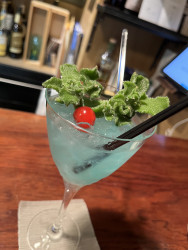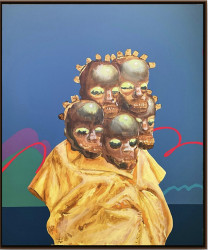
Originally published on metropolis.co.jp on September 2011


“When the disaster struck Japan, the world’s eyes were on the country,” Incognito leader Jean Paul “Bluey” Maunick began to tell several thousand Japanese jazz fans listening intently at the Tokyo International Forum.
“And what they saw was a nation that responded with dignity,” he said. “There was no looting like we saw recently in my country,” continued the UK resident. “People stuck together and treated each other with respect.”
As a camera on a massive boom panned around the well-to-do crowd populating the gargantuan hall, Bluey then led them in a round of self-congratulatory applause. Amid widespread dissatisfaction with the government’s response to 3/11, however, it had to be with mixed feelings that they welcomed his remarks.
Still, there was no arguing with Bluey’s sentiments. The diminutive but unstoppable bandleader, ever popular in Japan for his slick brand of jazz-funk, had produced a star-studded charity single, “Love Will Find a Way,” which he used to bring down the curtain on a Saturday night set that delivered with classics such as “Nights Over Egypt.”
Incognito had been preceded in the Saturday night “Groove” program by Japanese jazz outfit Quasimode. Led by ever-grinning percussionist Takahiro “Matzz” Matsuoka, the group showed why it has become one of the country’s most omnipresent acts—and why it’s called the Magic Ensemble (the name of its new album)—getting the audience off its seats with a blizzard of Latin beats.
The leading spot on the bill was given over not to Incognito, though, but to domestic piano phenomenon Hiromi Uehara. Celebrated for her virtuoso technique and supple fusion of jazz, blues, fusion and rock, Uehara appeared twice at the festival. She was also slated to perform with tap dancer Kazunori Kumagai in the Sunday “Makin’ Happy!” program.
On stage with the grinning, red-dress-encased Uehara were British drummer Simon Philips of Toto and bassist Anthony Jackson, both consummate musicians who were more than up to the technical challenge offered by the music on the pianist’s new album Voice.

Beginning with the hyperactive title track, their set took in a range of songs from the record including the spikey synth workout “Now or Never.” The trio established a tight-knit chemistry that allowed sly allusions to jazz standards such as “My Favorite Things” amid athletic improvisational workouts. Some have criticized Uehara for being an overly “busy” player, but this criticism was belied by the Tokyo International Forum’s audience, which accorded her a standing ovation.
Also lost on the audience was the snipe that Tokyo Jazz is overly conservative in its programming, which this year ran from the big band jazz of the Count Basie Orchestra through the obligatory summoning of Al Jarreau and co. for a performance of their chart-topping Jazz for Japan charity album.
Acolytes of Japan’s turbulent avant-garde jazz improv scene may not care for Tokyo Jazz, but they’ve got their own festival now in the form of Jazz Art Sengawa.
So who’s to argue if the organizer, public broadcaster NHK, is able to fill the house at Tokyo International Forum with a diet of mostly tried-and-tested mainstream jazz? Certainly not the packed crowd in attendance on Saturday night.







